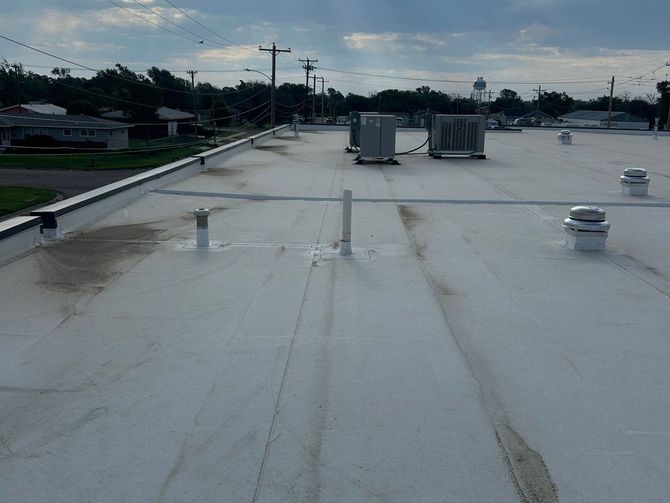When it comes to choosing a roof for your home or business, metal roofs and asphalt shingles are among the top options. Each has its own set of advantages, but which one is right for you? This article compares metal roofs with shingles, covering aspects like durability, cost, aesthetics, and climate adaptability.
How Durable Are Metal Roofs vs. Shingles?
Durability is a major factor when choosing between metal roofs and shingles. Let’s compare how each material holds up over time:
- Metal Roofs: Metal roofs are incredibly durable and can last up to 50 years or more. They are resistant to extreme weather, including high winds, heavy snow, and hail, and they don’t warp, crack, or curl over time.
- Shingles: Asphalt shingles have a typical lifespan of 20 to 30 years, but they are more vulnerable to damage from extreme weather like hail, intense heat, and high winds.
Metal roofs win in terms of durability, lasting longer and resisting harsher weather compared to asphalt shingles.
Cost Breakdown: Metal Roofs vs. Shingles
While metal roofs offer longer lifespan and better durability, the initial cost is usually higher than that of asphalt shingles. Here's a breakdown of the costs:
- Metal Roofs: The installation cost for a metal roof can range from $7 to $12 per square foot, depending on the material and installation complexity. However, metal roofs require little maintenance, and the long-term savings from fewer repairs can offset the higher upfront costs.
- Shingles: Shingles are more affordable initially, costing between $3 to $5 per square foot. However, they may require more frequent maintenance and eventual replacement, making them more expensive in the long run.
Asphalt shingles are cheaper to install initially, but the long-term costs of repairs and replacements often make metal roofs a more cost-effective choice.
Aesthetic Appeal: Metal Roofs vs. Asphalt Shingles
Both metal roofs and shingles offer a variety of styles and colors, but there are some key differences in terms of aesthetic appeal:
- Metal Roofs: Metal roofs are available in a range of colors and finishes, including standing seam and corrugated panels, which offer a modern, sleek appearance. Metal roofs work well with contemporary or industrial-style properties.
- Shingles: Asphalt shingles offer greater versatility for traditional homes, available in various shapes, textures, and colors, often chosen for suburban residential properties.
If you prefer a modern or industrial look, metal roofs are the better option, whereas shingles are more suited for traditional residential aesthetics.
How Do Metal and Shingles Perform in Different Climates?
The climate in your area plays a significant role in determining the best roofing material for your property:
- Metal Roofs: Metal roofs are energy-efficient, reflecting sunlight to reduce cooling costs in hot climates. They also perform well in snowy areas and resist rust and corrosion, making them ideal for coastal regions.
- Shingles: While asphalt shingles are effective in moderate climates, they may not perform as well in extreme conditions. They can be damaged by hail, intense heat, and high winds, and they tend to absorb heat, which can increase cooling costs in hotter climates.
For regions with extreme weather conditions, metal roofs offer superior protection, while shingles are best for more temperate climates.
Wrapping Up: Which Roof Option is Best for You?
The right roofing choice for your home or business depends on factors like cost, durability, and climate. Metal roofs are more durable and energy-efficient in harsh climates, while shingles offer a more affordable option for traditional designs.
Consider your specific needs and consult with a professional roofer to ensure you choose the best roofing material for your home or business.
#MetalRoofsVsShingles #BestRoofingMaterials #RoofingComparison #MetalRoofing #ShingleRoofing #RoofInstallation #HomeImprovement #BusinessRoofing
